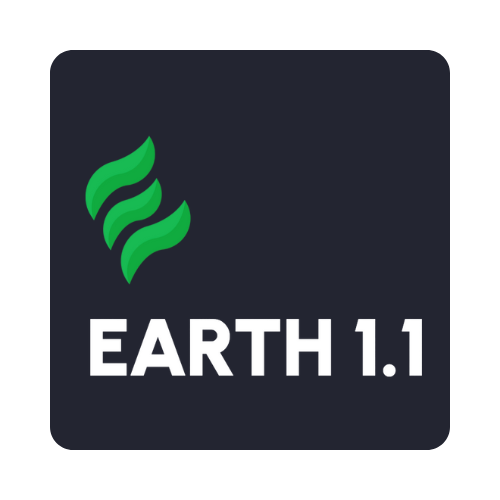
Emtech
Emtech is a financial technology company that provides a full-stack Central Bank Digital Currency (CBDC) platform for central banks and other financial regulators. Its purpose is to equip its clients with tools to issue their own digital currencies and to empower these institutions to lead innovation in financial services while ensuring regulatory compliance and stability.
The company’s offerings are centered around two key products. The first is its CBDC Core Solution, which provides the underlying technology for a central bank to mint, distribute, and manage a digital currency. The second is its innovative Digital Regulatory Sandbox, a controlled environment where fintechs and other financial service providers can build and test new applications using the CBDC, all under the direct oversight of the regulator. This collaborative approach helps bridge the gap between innovators and policymakers.
Emtech has a significant partnership with Hedera, having announced that its CBDC platform is built on the Hedera public ledger. By leveraging Hedera's high-throughput, secure, and low-energy network, Emtech can offer central banks a highly resilient and auditable infrastructure for their digital currency operations.
Project Information
Related Projects

Earth 1.1 is a financial technology platform that connects capital with carbon-neutral energy projects, aiming to accelerate the adoption of renewable energy and foster a sustainable, circular economy. The company's vision is to create a self-sustaining renewable energy industry that not only addresses environmental challenges but also generates high-tech job opportunities.
The core of Earth 1.1's offering is a scalable and secure digital platform that serves multiple functions. Primarily, it acts as a financing channel, allowing both institutional and individual investors to discover and fund a range of renewable energy and carbon mitigation ventures. For project developers, the platform features a project submission portal where they can register their initiatives to seek collaborative opportunities and expedite development. Beyond financing, Earth 1.1 is also building a community dedicated to environmental sustainability, creating an ecosystem for like-minded individuals and organizations to connect and drive the transition to a greener planet.

Hashport is an interoperability solution designed to connect the Hedera network with other major blockchain ecosystems and enable the transfer of digital assets across distributed ledgers. It functions as a public utility, facilitating bidirectional token bridging, which allows users to move assets from one network to another.
The platform supports connections between the Hedera blockchain network and other prominent blockchains such as Ethereum, Polygon, and BNB Chain. The process involves users locking their original assets on the source chain to facilitate “porting” of newly-minted, wrapped versions of the original asset to the destination chain. Upon retrieval, the ported asset version is burned on the destination network thus unlocking the original tokens on their native chain.
Hashport utilizes a consortium of independent and reputable validators verify and authorize transactions in order to ensure end-to-end security. These validators monitor events on the connected chains to ensure the integrity of the bridging process. By enabling seamless cross-chain transfers, Hashport plays a vital role in expanding the reach of decentralized applications (dApps) and assets within the Hedera ecosystem.

Atma.io, a venture by Avery Dennison, is a connected product cloud platform designed to bridge the physical and digital asset worlds by assigning unique digital identities to everyday items. The Atma platform enables end-to-end supply chain transparency via the Hedera blockchain, allowing businesses and consumers to track products from source to point of sale and beyond. It accomplishes this through the use of identification technologies such as RFID and QR codes to capture and manage vast amounts of data about individual product journeys.
A crucial component of Atma.io's architecture is its use of the Hedera Hashgraph distributed ledger technology (DLT) to ensure the immutability and verifiability of supply chain events and sustainability credentials. This provides a trusted layer for product authentication and helps combat counterfeiting.
Serving a multitude of industries, including apparel, retail, food and beverage, and pharmaceuticals, Atma.io offers solutions for enhanced inventory management, improved operational efficiency, and deeper consumer engagement. It can be utilized to share verifiable product origin stories, provide detailed sustainability information, and support circular economy initiatives.

Transak is a global Web3 payment provider that builds developer-focused tools to bridge traditional finance with digital assets. The company’s core service is to enable users to seamlessly buy and sell cryptocurrencies directly within any decentralized application (dApp). This is primarily achieved through a simple, embeddable widget or API that developers can integrate into their platforms with just a few lines of code.
By handling the complex backend processes of payment processing, fraud monitoring, and regulatory compliance like KYC/AML, Transak solves a critical onboarding challenge for the Web3 ecosystem. It eliminates the need for users to leave a dApp, register on a centralized exchange, and manually transfer funds, which significantly reduces friction and improves user conversion rates. The platform supports a wide array of local payment methods across more than 150 countries, including credit/debit cards, bank transfers, and other regional options.
Transak is integrated with the Hedera network. This enables developers building on Hedera to provide their users with a direct and localized on-ramp to purchase HBAR and other Hedera-based tokens.
